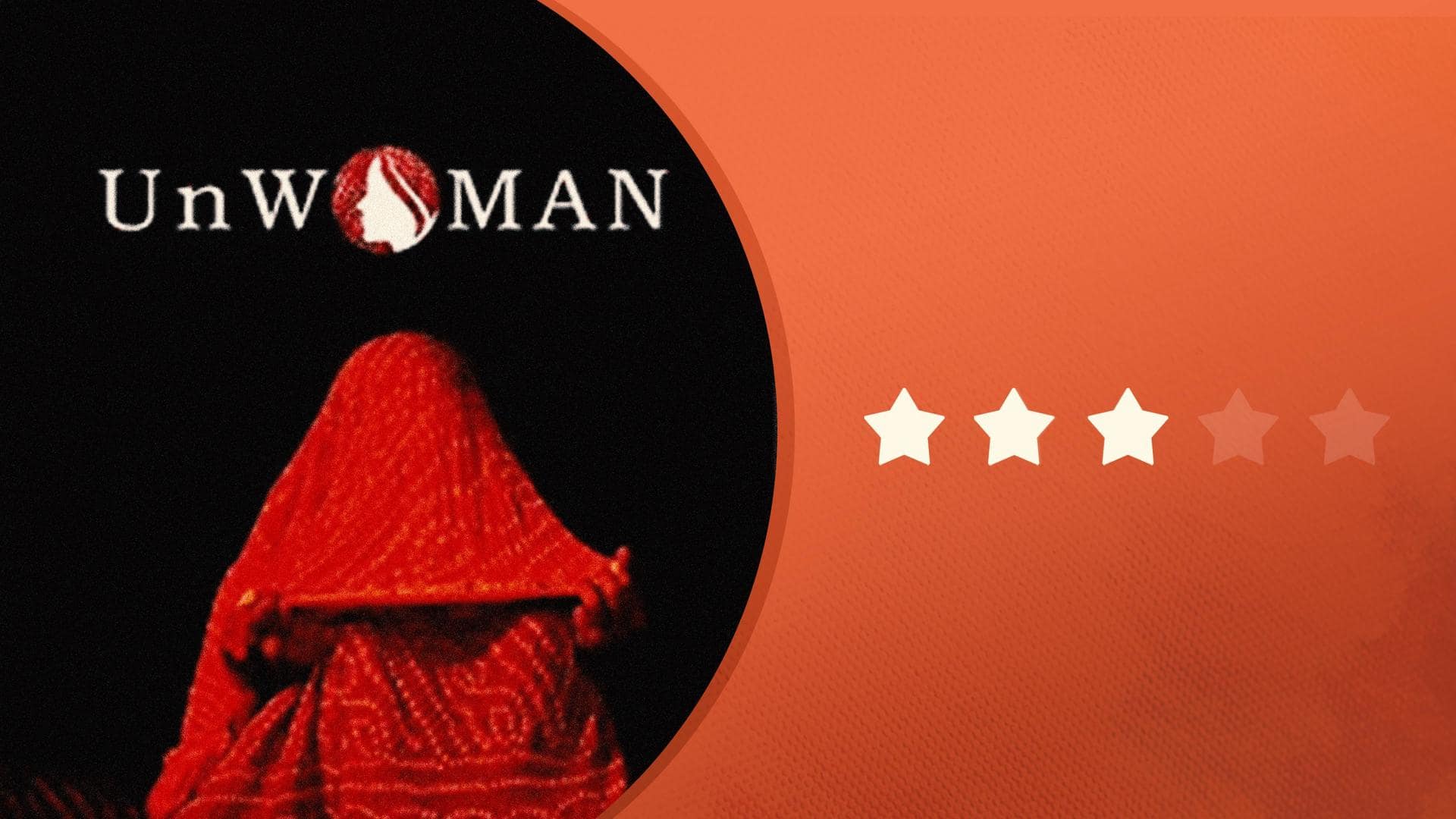
'UnWoman' review: Sensitive, piercing LGBTQ+ drama rooted in rural India
What's the story
UnWoman, directed by Pallavi Roy Sharma and produced by Gunjan Goel, Susheel Sharman, and Shalmali Prakash, is a sensitive, poignant, searing drama that exposes the grim reality of the LGBTQ+ community in India, especially in the hinterlands. Set against the backdrop of rural Rajasthan, the film dissects the themes of feminism, social awareness, unapologetic patriarchy, and internalized misogyny. Here's our review.
Plot
'UnWoman' deals with a transperson's marriage
The film revolves around Sanwari (Kanak Garg), a transgender, who's sold off to a middle-aged man Bhanwar (Sarthak Narula). Bhanwar lives with his uncle Bhairo (Bhagwan Tiwari) and worried that Bhanwar might not find a woman in their own village, Bhairo pays a human trafficker Rs. 50,000 to "buy" Sanwari from him. However, they soon realize her reality, and subsequently, all hell breaks loose.
Positive 1
How much agency do women really have, if at all?
UnWoman isn't hesitant to exhibit reality and it's a commentary on society when Sanwari is captured by a human trafficker, then sold off, and then eventually left to scour for crumbs. Women's fate is decided by men more often than not, and here, the situation aggravates because the othering of the character is due to her being trans—a step down from the female sex.
Positive 2
Film doesn't let us forget that marriages are often 'transactions'
When the "discussion" or the "business transaction" about Sanwari's marriage transpires between three men, she is the only one who doesn't utter a word. Because, of course, women's decisions are often handed out to them. She becomes a commodity, a "thing" that must reap benefits in the long run—birth kids, take care of the home, and be at the beck and call of men.
Positive 3
The rustic setting increases the film's authenticity
The film plays out like a theatrical production due to its performances, rootedness, and rustic locations that are steeped in authenticity. The Indian marriage market is less companionship-based and more a "deal" that must come through, and UnWoman repeatedly reinforces this point through its three central characters. If the protagonist were not trans and just a woman, the scenario wouldn't have been much different.
Positive 4
Representation of how men are often raised to be patriarchal
UnWoman also makes a fair point about how patriarchy is embedded into the psyche of men right from adolescence and they ultimately end up resigning to it because that's how they have been conditioned. For instance, there are several instances when Bhanwar is reluctant to treat Sanwari wrong, but his uncle eggs him on, reminding him that "wives must be treated a certain way."
Positive 5
An intelligent reference to religion delivers a significant message
At one point, Sanwari refers to Ardshnarishwar—Lord Shiva's half-woman-half-man avatar and I found that to be a nice touch of religion since it implies that even gods didn't discriminate based on appearances, but humans do. There's also nuanced subtext about how LGBTQ+ oppression plays out differently yet similarly in rural and urban areas—everyone is fighting a different fight, but the core remains the same.
Negatives
Negatives: The editing and transition between scenes lack a flow
UnWoman's central agenda is to put across the point that men are capable of unlearning and breaking free from patriarchy; however, the transition to this is rushed and patchy. In one scene, we see Bhanwar chiding Sanwari, but minutes later, he reconciles with her and even begins to fall for her. This aspect comes across as forced because it's not provided enough breathing space.
Verdict
We recommend watching 'UnWoman' in theaters
UnWoman reminded me of the social awareness dramas Colors TV used to produce once, which emphasized women's rights and emancipation. This is cut from the same cloth. Its most distinctive aspect is that it drives multiple points home without being preachy or didactic, and accentuates that patriarchy is the real monster, and men and women are merely simply carriers of it. Verdict: 3/5 stars.